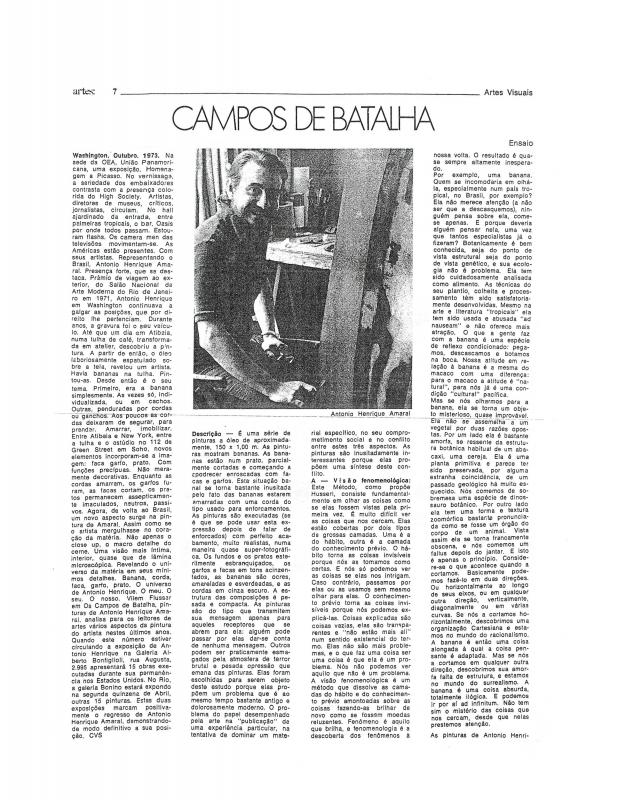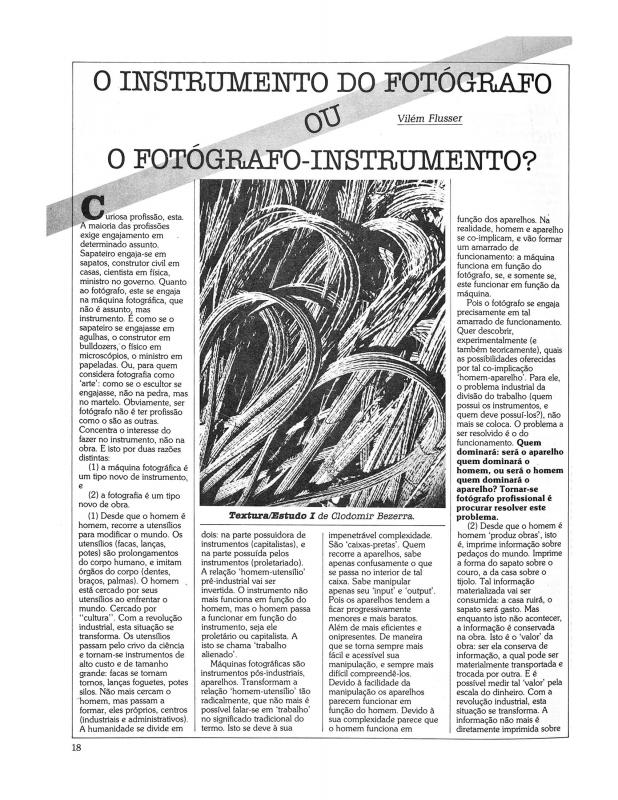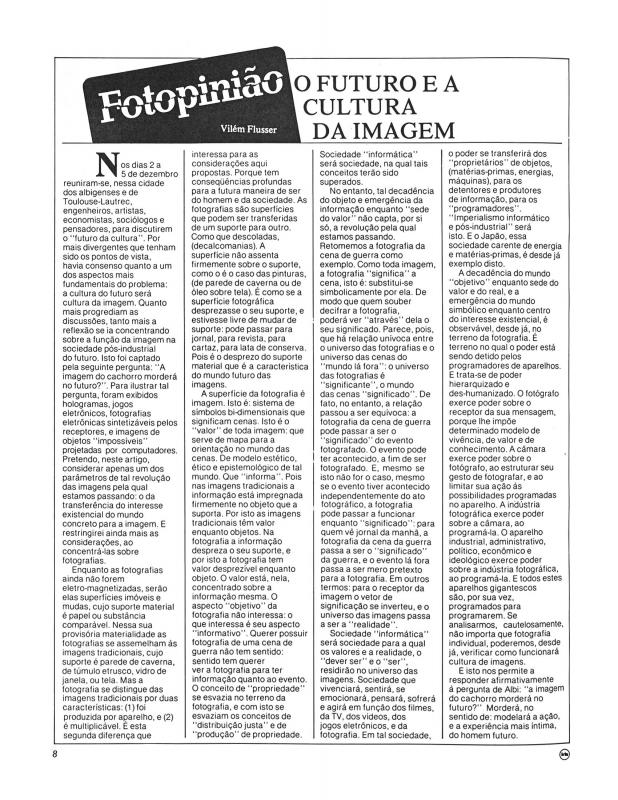Czech philosopher Vilém Flusser (1920–91) lived in São Paulo for nearly two decades after fleeing Nazism. Ironically, he returned to Europe in 1972 pursuant to the harshening of the military dictatorship in Brazil in power from 1964 to 1985 and the oppressive climate in the country. He wrote a series of works on the philosophy of language that reflects on the links between contemporary man and new image technologies. This article is one of a group of thirteen essays published in the magazine Íris from 1982 to 1985, the years when democracy was slowly returning to Brazil (Flusser was living abroad by that time). Ricardo Mendes, who wrote his dissertation on Flusser, asserts that the Czech philosopher’s ideas brought a new air to the stifled atmosphere surrounding photography in the country at a time when the thinking of post-structuralist and semiotic theorists—in particular Roland Barthes and Susan Sontag—was extremely influential. Flusser was in contact, during that period, with Stefania Bril and Arlindo Machado, both of whom communicated his theory as critics for major São Paulo newspapers. Flusser’s work was also influential among some artist-researchers.
Flusser was an integral part of the first generation of professors and theorists working in the sphere of communications in Brazil. Flusser’s studies in Czechoslovakia were interrupted by the Nazi invasion. While, as a result, he was largely self-taught, important points of reference in his education included Martin Heidegger and the phenomenology of being and time. He moved to São Paulo in 1941, eventually becoming a citizen. His work gained recognition in the academic milieu and in the media starting in the sixties. A founding professor at the Escola de Comunicação e Artes da Universidade de São Paulo (ECA-USP), he was a contributor to the Revista Brasileira de Filosofia and to the literary supplement to the newspaper O Estado de S. Paulo. In 1972, he returned to Europe, where he was active until the end of his life. Flusser took part in countless seminars and conferences, and gave classes in communications. His books, which have been translated into German, French, and English, include Filosofia da Caixa Preta [Philosophy of the Black Box], indisputably one of his most important works. Originally published in German (Göttingen, Alemania, 1983), Flusser himself translated it into Portuguese.
During his brief stays in New York in the seventies, Flusser analyzed the paintings Antonio Henrique Amaral (1935?2015) was making on the banana theme at the time, work with which his production would come to be identified (see “Campos de batalha: tornar visível o invisível ? mudar nossa maneira de viver” [doc. no. 1111050]). Other texts by Flusser on photography include “O instrumento do fotógrafo ou o fotógrafo-instrumento?” [doc. no. 1110899], written in 1982, and “O futuro e a cultura da imagem” [doc. no. 1110898], written in 1983.



